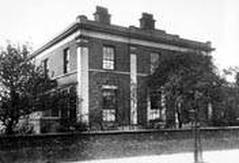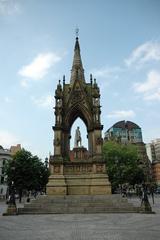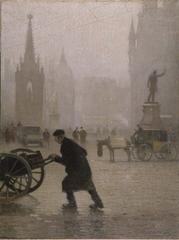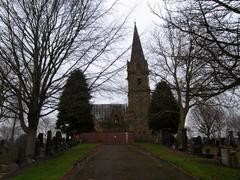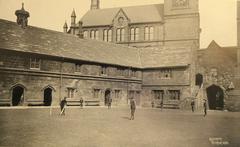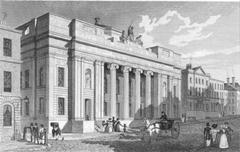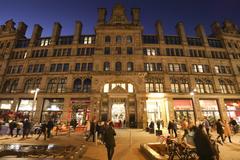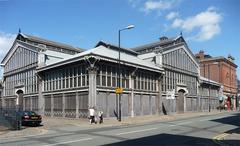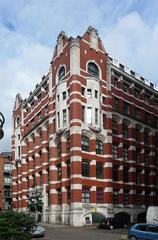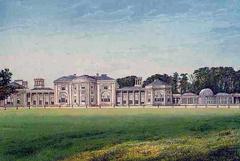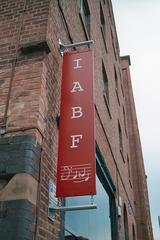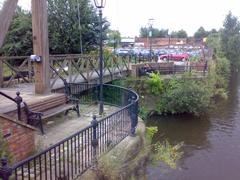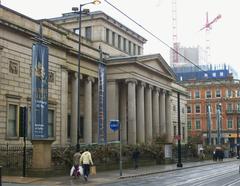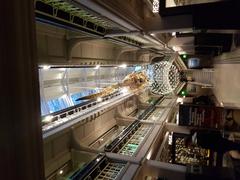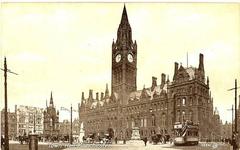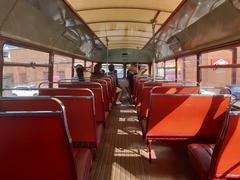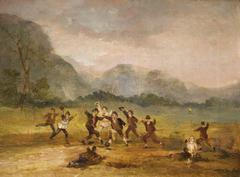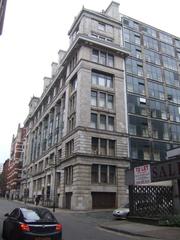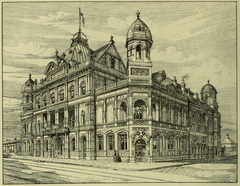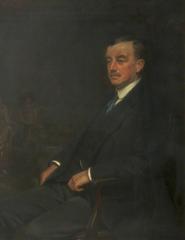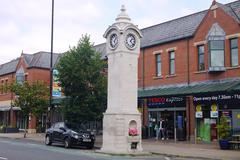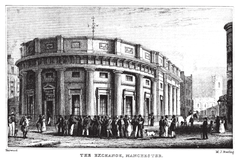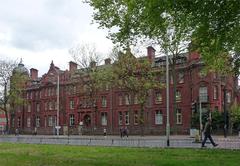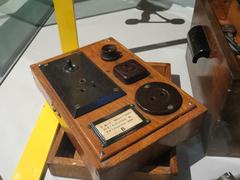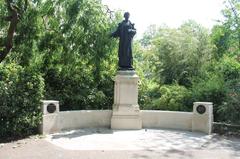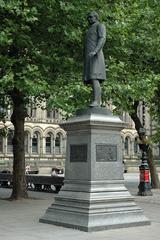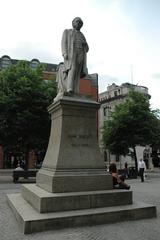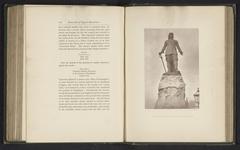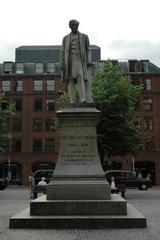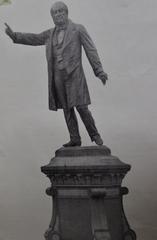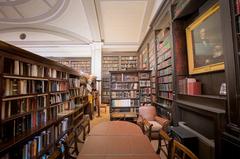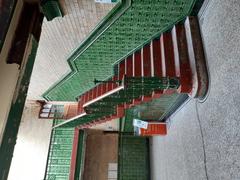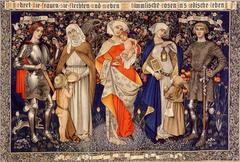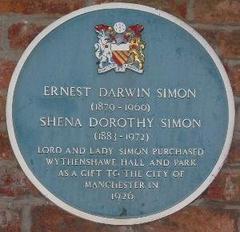
Manchester Unlocked: Your Whimsical Guide to the Rainy Rebel City
Date: 04/07/2025
Why Manchester Will Steal Your Heart (and Maybe Your Umbrella)
Manchester isn’t just a city—it’s a remix, where every cobblestone, warehouse, and whisper of rain narrates a story set to a symphony of music, invention, and rebellion. Here, the past and future collide with a Mancunian wink: Roman legions once marched where trams now rattle, and the canals that powered the Industrial Revolution reflect neon from indie bars and street art (History of Manchester, Wikipedia; Castlefield Roman Fort, History Hit).
Step off the train at Piccadilly and you’ll feel the buzz: the worker bee—the city’s proud emblem—everywhere, rain on stone, and a soundtrack that swings from Joy Division to grime bangers. Manchester is a patchwork of old mills converted into espresso bars, gothic libraries that out-magic Hogwarts, and markets where you’ll hear more languages in a minute than in a season of Netflix binges (John Rylands Library, History Hit; Historic UK: Manchester Guide).
But Manchester is more than its music legends and moody weather. It thrives on reinvention: the atom was split here, suffragettes plotted revolution over tea, and every pub has a tale—of football glory, factory strikes, or that one time someone spotted Liam Gallagher at the chippy (Pankhurst Centre, History Hit; St Peter’s Square, History Hit).
So, lace up your trainers, grab your curiosity (and maybe your brolly), and dive in. This guide is your backstage pass: a choose-your-own-adventure where you’ll hunt mosaic bees, order a chip barm like a pro, and maybe discover the secret behind Manchester’s eternal optimism. Whether you’re a history buff, music nerd, foodie, or just looking to soak up some proper northern hospitality, Manchester’s got a story (and a brew) for you. Let’s get buzzin’.
Manchester’s Treasure Map: Themed Adventures
Here’s your whistle-stop itinerary for exploring Manchester’s many faces:
- Prehistoric and Roman Beginnings
- Medieval Manchester: Parish, Manor, and Market Town
- The Industrial Revolution: Manchester as “Cottonopolis”
- Social Change and Reform
- Victorian and Edwardian Manchester: Civic Pride and Culture
- 20th Century: War, Decline, and Regeneration
- Heritage and Historic Attractions
- Modern Manchester: Diversity, Innovation, and Global Significance
- Cultural Significance & Local Life
Let’s dive into the city’s timeline and culture.
Prehistoric and Roman Beginnings
Manchester’s story reaches back to prehistoric times, with evidence of human activity such as stone tools and Bronze Age burials. The Brigantes, a powerful Celtic tribe, dominated before the Romans arrived (Wikipedia: History of Manchester). Around 79 AD, the Romans founded Mamucium (or Mancunium) at today’s Castlefield—a fort built to guard the River Medlock. You can still explore the reconstructed Roman fort in Castlefield, a window into Manchester’s ancient origins (History Hit: Castlefield Roman Fort).
Medieval Manchester: Parish, Manor, and Market Town
After the Romans, Manchester remained a modest settlement for centuries. In the medieval era, it grew into a market town centered around its manor house and parish church. The Norman Greslet family played a leading role, and the original parish church—now Manchester Cathedral—dates to 1215. You’ll still find the Greslet coat of arms within the cathedral’s walls (History Hit: Manchester Cathedral).
Medieval Manchester’s economy revolved around agriculture, local trade, and woolen goods. The 1301 market charter enabled regular markets and annual fairs, sowing seeds for future economic growth.
The Industrial Revolution: Manchester as “Cottonopolis”
Manchester’s real transformation began with the Industrial Revolution in the late 18th century. Powered by textile innovation—especially cotton spinning and weaving—the city became the world’s first industrialized metropolis, nicknamed “Cottonopolis” (Wikipedia: History of Manchester).
The Bridgewater Canal (1761) revolutionized transport for raw materials and finished goods, fueling the city’s explosive growth and industrial prowess (Wikipedia: History of Manchester). Manchester’s population soared from 25,000 in 1773 to over 300,000 by 1851. Mills, warehouses, and chimneys redefined the skyline, while working-class neighborhoods mushroomed. The city became a hotbed for radical politics—home to the Manchester School and the Free Trade Hall, a symbol of progressive spirit.
Social Change and Reform
Industrial success brought immense prosperity—and hardship. Manchester became a crucible for social and political reform, typified by the Peterloo Massacre of 1819. On St Peter’s Fields (now St Peter’s Square), a peaceful pro-democracy rally was brutally dispersed, leading to 16 deaths and more than 600 injuries. A memorial in St Peter’s Square now marks this historic event (History Hit: St Peter’s Square).
Manchester also played a pivotal role in the women’s suffrage movement. The Pankhurst family, iconic leaders of the suffragettes, called Manchester home—their former house is now the Pankhurst Centre, honoring women’s rights (History Hit: Pankhurst Centre).
Victorian and Edwardian Manchester: Civic Pride and Culture
Industrial wealth fueled Manchester’s architectural and cultural boom. Landmarks like the neo-Gothic Town Hall (1877), Central Library, and the Midland Hotel showcase the city’s ambition (Historic UK: Manchester Guide). The John Rylands Library (1900) is a masterpiece of Victorian Gothic, housing rare books and manuscripts (History Hit: John Rylands Library).
Manchester’s cultural scene thrived, with residents like novelist Elizabeth Gaskell (her house is now a museum) and mathematician Alan Turing, who worked at the University of Manchester (History Hit: Elizabeth Gaskell’s House).
Twentieth Century: War, Decline, and Regeneration
Manchester faced challenges in the 20th century, suffering bomb damage during WWII, including to its cathedral and commercial districts (History Hit: Manchester Cathedral). Post-war years brought industrial decline and urban decay.
But the city’s resilience sparked regeneration. The 1996 IRA bombing, which devastated the city centre, prompted ambitious redevelopment. Modern icons like Beetham Tower and revitalized Salford Quays—home to The Lowry and MediaCityUK—signify the city’s renewal (Historic UK: Manchester Guide).
Heritage and Historic Attractions for Visitors
Manchester’s diverse history is written into its attractions:
- Castlefield Urban Heritage Park: Roman fort, Victorian canals, and industrial warehouses (Visit Manchester: Heritage and History).
- Manchester Cathedral: A blend of medieval and modern, with striking interior features (History Hit: Manchester Cathedral).
- John Rylands Library: Neo-Gothic wonder, open to the public (History Hit: John Rylands Library).
- Chetham’s Library: The oldest public library in the English-speaking world (History Hit: Chetham’s Library).
- Ordsall Hall: Tudor manor with interactive exhibits (History Hit: Ordsall Hall).
- St Peter’s Square: Site of the Peterloo Massacre memorial (History Hit: St Peter’s Square).
- Elizabeth Gaskell’s House: A Victorian literary time capsule (History Hit: Elizabeth Gaskell’s House).
Modern Manchester: Diversity, Innovation, and Global Significance
Today, Greater Manchester boasts a population of over 2.6 million (Historic UK: Manchester Guide). Its reputation for diversity, vibrant culture, and sporting excellence is world-renowned—home to football giants Manchester United and Manchester City.
The city’s commitment to inclusivity, sustainability, and innovation is clear in its regeneration projects and vision for the future (Manchester City Council: Our Manchester Strategy). From Roman ruins to cutting-edge architecture, Manchester’s layered heritage invites exploration. Museums, historic sites, and guided tours offer endless opportunities to discover its enduring significance.
Manchester’s Cultural Significance: The City That Never Stops Remixing
More Than Just Rain and Football
Let’s set the record straight: Manchester isn’t just rain and football. It gave the world the first passenger railway, split the atom, invented the computer, and—legend has it—knows 42 ways to order a brew. Every street thumps with rhythm, every corner hums with new ideas, layered over centuries of innovation.
Industrial DNA & Urban Swagger
Strolling Manchester’s cobbles is like time travel. Red-brick mills in Ancoats (now home to the city’s best sourdough and espresso) signal industrial roots. Canals whisper cotton and steam tales, while the Science and Industry Museum lets you explore hands-on. Spot the worker bee mosaics—the city’s symbol of hard graft. Challenge: How many bees can you count in a day?
Music That Moves the World
Manchester’s soundtrack is legendary: Joy Division, The Smiths, Oasis, and beyond. Venues like the Albert Hall and Northern Quarter bars host everything from indie to DJ sets. The Hacienda’s spirit lingers—ask a local for a Madchester tale.
Mini-quest: Browse Piccadilly Records for a staff pick, or hunt down a Smiths lyric mural.
Art, Oddities, and Hidden Corners
The Manchester Art Gallery dazzles with Pre-Raphaelite drama and modern flair. The Whitworth is perfect for a coffee and a sprawl on the grass. John Rylands Library is gothic magic; Chetham’s Library is the oldest in the English-speaking world. Duck into Portico Library or enjoy fairy lights and poetry at Chapter One Books.
Eat, Drink, and Be Manc
Manchester’s Curry Mile in Rusholme ignites your senses with spice, while Chinatown serves up dim sum delights. Grab a chip barm from a chippy with a neon sign. Sample craft pints at the Marble Arch or have tea at Richmond Tea Rooms.
Interactive challenge: Order a chip barm and try your best Manc accent—“Ta, love!”
Theatre, Literature, and the Spoken Word
The Royal Exchange Theatre puts you at the heart of the action. The Central Library is a domed sanctuary for readers and thinkers. As a UNESCO City of Literature, Manchester celebrates authors like Jeanette Winterson and Anthony Burgess—strike up a chat at Blackwell’s bookshop.
Sport: More Than a Game
Red or blue? United or City? Take a side and join the banter. Tour Old Trafford or the Etihad. Try cricket at Old Trafford or cycling at the National Cycling Centre. The National Football Museum is interactive and welcoming to fans and newbies alike.
Etiquette tip: Never call it “soccer.”
Festivals, Seasons, and Surprises
Manchester celebrates all year: the International Festival brings art pop-ups and gigs; Manchester Pride paints the city rainbow each August. Spring’s Flower Festival transforms the streets, and winter’s Christmas markets fill Albert Square with cheer.
Local legend: “It’s always raining in Manchester”—locals just call it “liquid sunshine.”
Quirks, Lingo, and Social Survival
To blend in:
- “Our kid” = sibling or close friend
- “Ginnel” = alleyway
- “Proper Mint” = really good
- “Buzzin’” = excited
- “You alright, love?” = friendly greeting
Queueing is sacred—never cut in. Mancs are friendly but never without a hint of sarcasm.
Myths, Misconceptions & Mind-Blowers
- Myth: Manchester is always grey. In truth, street art explodes with color—look for the giant blue tit mural!
- Myth: It’s all football and factories. The city’s tech, gaming, and creative industries are thriving—visit MediaCityUK.
- Surprise: Explore the city’s underground tunnels and book a historic tour.
Choose Your Adventure: 24 Hours in Madchester
- Morning: Coffee in the Northern Quarter, bee-spotting, and record shopping.
- Midday: Science and Industry Museum visit, lunch on the Curry Mile.
- Afternoon: Art at the Whitworth, canal stroll in Castlefield.
- Evening: Gig at Albert Hall or jazz at Matt & Phred’s, then a nightcap.
Feeling bold? Hunt all five Alan Turing statues or ask a local for the best vegan cake spot.
FAQs: Mancunian Edition
Is Manchester safe for tourists?
Yes—just stick to well-lit areas at night and use common sense. The locals are welcoming.
What’s the best way to get around?
Trams, buses, or on foot. The city centre is walkable, and the free Metroshuttle is handy.
Can I tour both football stadiums in one day?
Absolutely—leave time for the gift shops!
Do I need to book museums in advance?
For major exhibitions, yes; otherwise, most are drop-in.
Will I understand the accent?
Give it a day. Mancunians are happy to translate—just ask.
Practical Tips with a Twist
- Weather wisdom: “No bad weather, only bad coats.” Bring an umbrella and your best parka.
- Museum hack: The Visit Manchester Pass unlocks 13 attractions and discounts.
- Neighborhoods decoded: Northern Quarter = indie, Ancoats = foodie, Castlefield = history meets hipster.
Manchester Unzipped: Greatest Hits & Hidden B-Sides
Historic and Architectural Landmarks
- Manchester Town Hall: Gothic grandeur and a selfie hot spot. Spot the mosaic bees in the stonework.
- John Rylands Library: Step into a Hogwarts-like world; seek out secret reading nooks.
- Manchester Cathedral: Medieval calm. Find the cat-and-mouse misericord carving.
Hidden Gems & Local Secrets
- Chetham’s Library: Oldest public library; ask about Marx and Engels plotting revolution.
- The Temple Bar: A former public toilet turned cozy pub.
- Peveril of the Peak: Historic green-tiled pub with darts trophies.
- Mackie Mayor: Manchester’s melting pot for foodies.
- Vimto Monument: Celebrate Manchester’s beloved soft drink.
Museums and Cultural Institutions
- Science and Industry Museum: Explore looms, steam engines, and the world’s first stored-program computer (Museum of Science and Industry, History Hit).
- Manchester Art Gallery: Pre-Raphaelite gems and modern installations.
- The Whitworth: Art, greenery, and vegan treats (The Whitworth).
- National Football Museum: Interactive fun for football fans and first-timers alike.
Music, Nightlife, and Festivals
- Factory International (Aviva Studios): The new cultural heart—spot the Tony Wilson mural.
- Band on the Wall: Legendary live music.
- Manchester Pride Festival: Rainbows and revelry in August.
- Manchester Jazz Festival: Courtyard gigs and local gin.
Sporting Attractions
- Old Trafford & Etihad Stadium: Football temples—choose your allegiance.
- Emirates Old Trafford: Cricket action and local chants.
Art, Shopping, and Culinary Highlights
- Northern Quarter: Street art, coffee, and vintage vinyl.
- Ancoats: Ramen, cruffins, and sunset pints.
- Victoria Baths: Historic tiles and ghost tours.
- Craft Beer & Gin Tours: Small-batch brews and local gins.
- Record Shops & Vintage Markets: Afflecks Palace is a retro maze.
Family-Friendly & Playful Manchester
- Science and Industry Museum: Interactive science fun.
- Chester Zoo: A splash of the wild for all ages.
Annual Events & Festivals
- Manchester International Festival: Avant-garde arts every July.
- MancHagen Eurovision Festival: Sequins and dance-offs in April.
- National Portrait Gallery Unframed at Salford Quays: Digital art projections and poetry.
Interactive Bee-Quests & Local Challenges
- Bee Hunt: Find 10 in a day for honorary Manc status.
- Order a “Proper Brew”: Use your Manc accent and say “Ta, love!”
- Street Art Safari: Snap the city’s boldest murals.
Time-Traveler’s Choice: Pick Your Adventure
1. Madchester Music Day:
Start at Afflecks, breakfast at Ezra & Gil, pose at Salford Lads Club, lunch at Mackie Mayor, tour Band on the Wall, sunset drinks at YES, and finish with a gig at The Ritz.
2. Industrial Revolution Quest:
Begin at the Science and Industry Museum, walk canal towpaths, lunch at The Wharf, tour Chetham’s Library, and finish at the People’s History Museum.
Manc Lingo 101: Sound Like a Local
- Ay-up: Hello!
- Dead good: Really great.
- Buzzin’: Happy/excited.
- Scran: Food.
- Ginnel: Alleyway.
- Sound: All good.
Use sparingly—authenticity is key!
Myth-Busting & Mind-Blowers
- Rain: Manchester gets less rain than Rome or Miami!
- Not just football: It’s the birthplace of veganism, the computer, and the atom split.
- Not all grim: The city sparkles when the sun hits Beetham Tower and the terraces buzz.
Local Tales: The Ghosts and Legends
- Alan Turing’s Secret Code: WWII codebreaker, city runner, legend.
- The Hacienda’s Lost Key: Still missing—some say hidden in a local record shop.
- Tony Wilson’s Law: “This is Manchester. We do things differently here.”
FAQ: Voice-Search Ready
What is Manchester famous for?
Music legends, football, the Industrial Revolution, and the bee spirit.
Is Manchester safe at night?
Yes—just use common sense as in any big city.
Where can I find the best street food?
Mackie Mayor, Altrincham Market, and Northern Quarter food trucks.
Does it always rain?
Not always! But when it does, seek shelter in a cozy pub.
What’s the Bee all about?
It’s Manchester’s symbol of hard work and unity.
Ready to Dive Deeper?
Manchester isn’t just museums and matchdays—it’s a feeling, a flavor, a rhythm. With Audiala, unlock audio tours, stories, and secrets narrated by real Mancs. Whether you’re bee-hunting, debating football, or craving a proper brew, Audiala’s got your back.
Ready to Dive In? Let Audiala Be Your Mancunian Muse
If Manchester teaches you anything, it’s that rain is just another excuse to gather, laugh, and dream. From Roman ruins to rooftop gigs, and from the hallowed Old Trafford turf to the blooms of the Flower Festival, Manchester is a living jukebox where every visitor adds their melody (Museum of Science and Industry, History Hit; The Whitworth; Visit Manchester: Heritage and History).
Now you know the city’s quirkiest pubs, how to survive a Manc accent, and why to never call it “soccer.” You’re in on the secrets behind the bee, the banter, and the brilliance that make Manchester more than a destination—it’s an experience (Manchester City Council: Our Manchester Strategy).
Don’t just wander—explore with Audiala. Unlock audio guides, local legends, and hidden gems. Whether you’re chasing murals or the ghost of the Hacienda, Audiala ensures you won’t miss a beat. Download, press play, and let Manchester’s stories be your guide. The city’s waiting, love. Are you buzzin’?
Bonus Bits: Films, Songs, Legends, and Local Lore
- Wikipedia: History of Manchester
- History Hit: Castlefield Roman Fort
- History Hit: Manchester Cathedral
- History Hit: John Rylands Library
- History Hit: Chetham’s Library
- History Hit: Ordsall Hall
- History Hit: St Peter’s Square
- History Hit: Elizabeth Gaskell’s House
- Historic UK: Manchester Guide
- Visit Manchester: Heritage and History
Audiala2024
